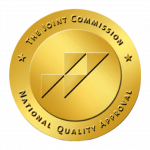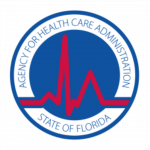According to an estimate, 70% of the US population has experienced a traumatic event at some point in their life. Another estimate reveals that 5% of the US population experiences Post-Traumatic Stress Disorder (PTSD) at any given time. Oftentimes, very few patients are properly diagnosed. Marginalized communities are often neglected and misdiagnosed.
Understanding Post Traumatic Stress Disorder
When a person experiences a traumatic event, there’s a potential to develop post-traumatic stress disorder (PTSD). Many people who experience a traumatic event will encounter a brief period of difficulty adjusting and returning to normal life. After some time, support, and self-care, most people heal and don’t have lasting residual effects. For a small percentage of people, symptoms may worsen or last for months to years and inhibit daily functioning.
The nature of traumatic events that may cause PTSD can be:
- Natural disasters such as earthquakes, floods, or hurricanes. Not only do natural disasters have the ability to take away all of someone’s personal belongings, but also cause bodily harm to themself or their family. Some people may face incredible loss causing a natural disaster to become a traumatic event of their life.
- Acts of terrorism and violent activities could also result in trauma. During these attacks, if someone is inured the trauma is more severe.
- The sudden death of a loved one may seem a part of life, but is very shocking for family members and loved ones. Depending on the nature and events surrounding a loved one’s death, it can develop into PTSD.
- Veterans, especially those experiencing violence and war-like conditions can develop PTSD.
- Serious accidents and medical injuries, for example car accidents or cancer diagnosis can cause trauma.
- Sexual or physical assault can also cause long-lasting emotional problems including PTSD.
No matter the reasons someone develops PTSD, PTSD, and addiction often co-occur. If you or a loved one have symptoms of PTSD or substance abuse after a traumatic event, consult with a medical professional right away.
Symptoms of PTSD
The symptoms of PTSD closely relate to anxiety. There are a lot of overlapping symptoms of anxiety and PTSD that make it difficult to differentiate between both of them, which is why it is so important to get a proper diagnosis from a medical professional.
Some symptoms of PTSD include:
- Life-like flashbacks to the traumatic event
- Intrusive thoughts or images
- Great distress from triggers (either real or symbolic)
- Physical responses, like sweating or nausea
- Alertness or Hyper Vigilance
- Nightmares
Co-Occurrence of PTSD and Addiction
Roughly 50% of people seeking addiction treatment also meet the criteria for PTSD. There are a lot of theories on why this phenomenon is so common. Many people who suffer from addiction develop a chemical dependency. Chemical dependency occurs when people abuse substances in an attempt to ward off difficult memories, anxiety, and depression. The belief that substance abuse will take the memories away is why most addicts are also diagnosed with PTSD.
Sadly, when alcohol or drugs are used to manage the pain and depression, it actually makes the symptoms more severe. Alcohol and opiates are central nervous system depressants and can worsen depression and anxiety. As well as interfere with sleep patterns. The important thing to remember is that even though someone suffering from addiction may also have PTSD, treating one won’t treat the other. However, there are facilities that can help with both.
If You Are Seeking Help
Various alcohol and drug rehabilitation centers can also play their part in solving the problems associated with mental health like PTSD by providing highly individualized services to the affected people. One of the most prominent examples is the Harm Reduction Center, which is a private Healthcare facility that offers integrated medication-assisted treatment, inpatient, and all outpatient levels of care. The experts at Harm Reduction Center believe that recovery should be different for everyone and the recovery process requires many different techniques and paths.














